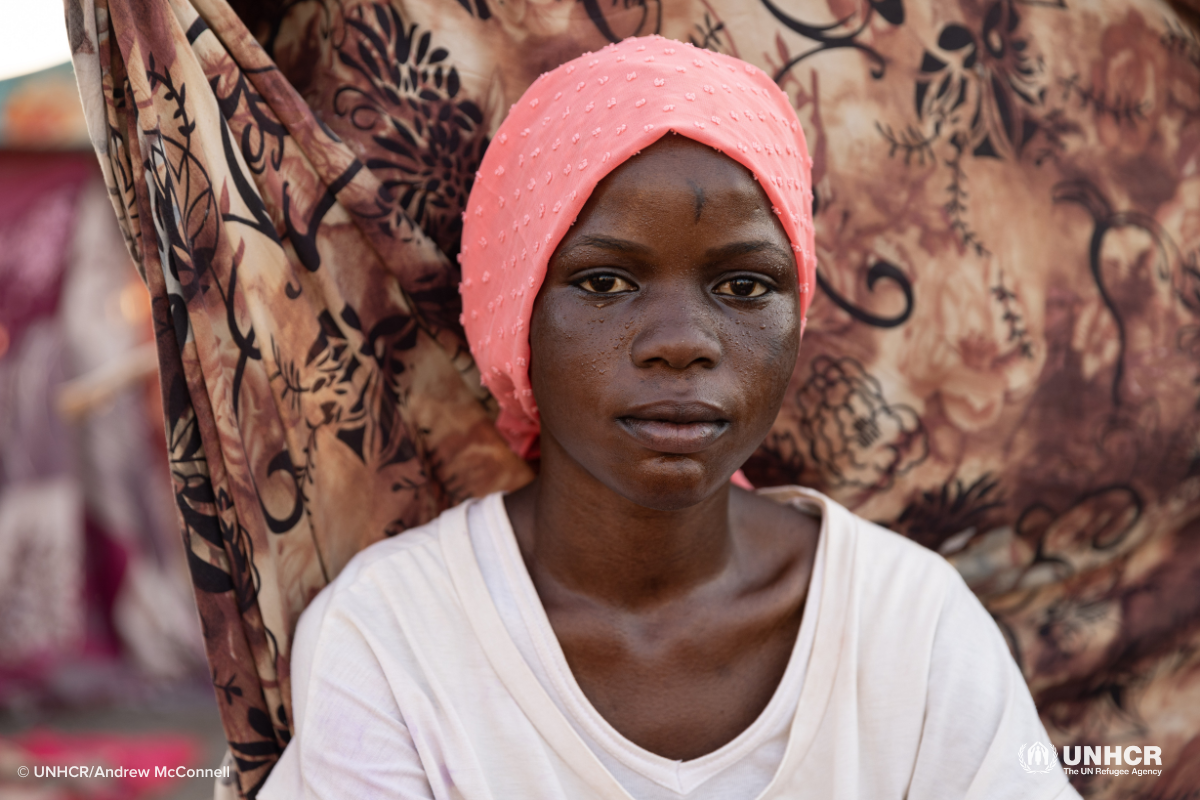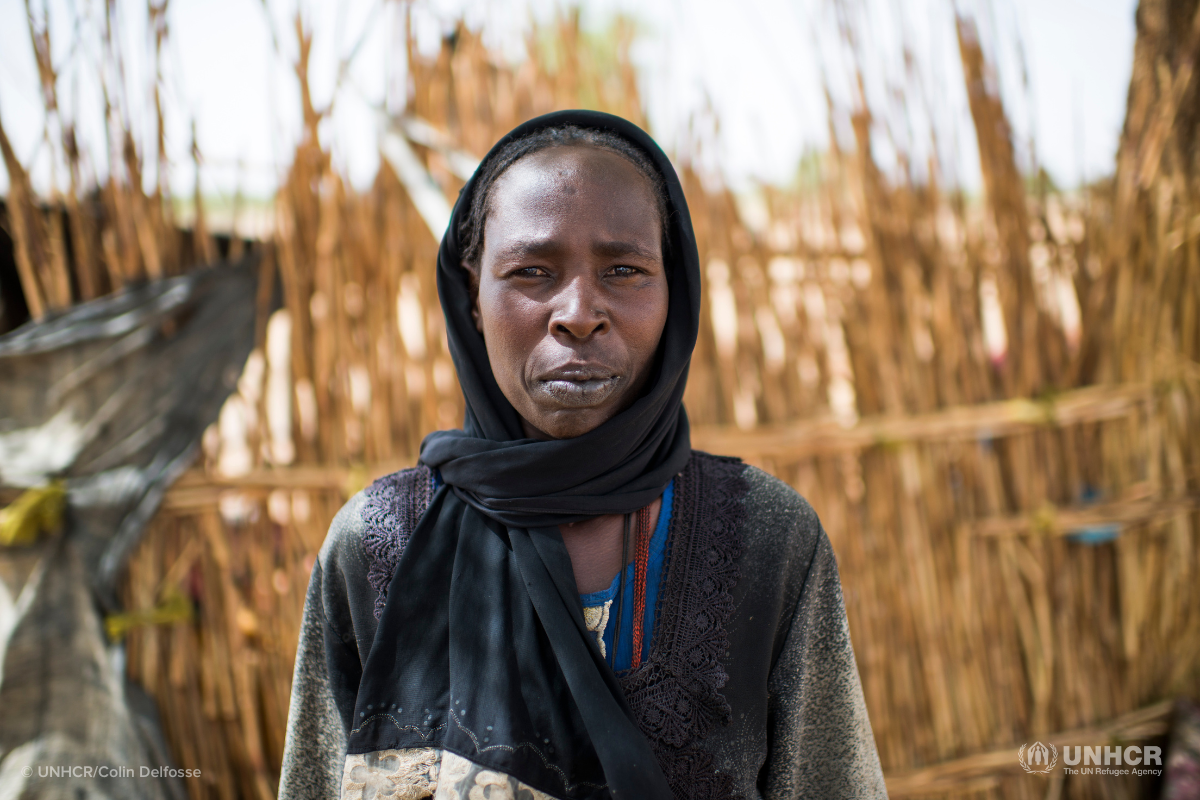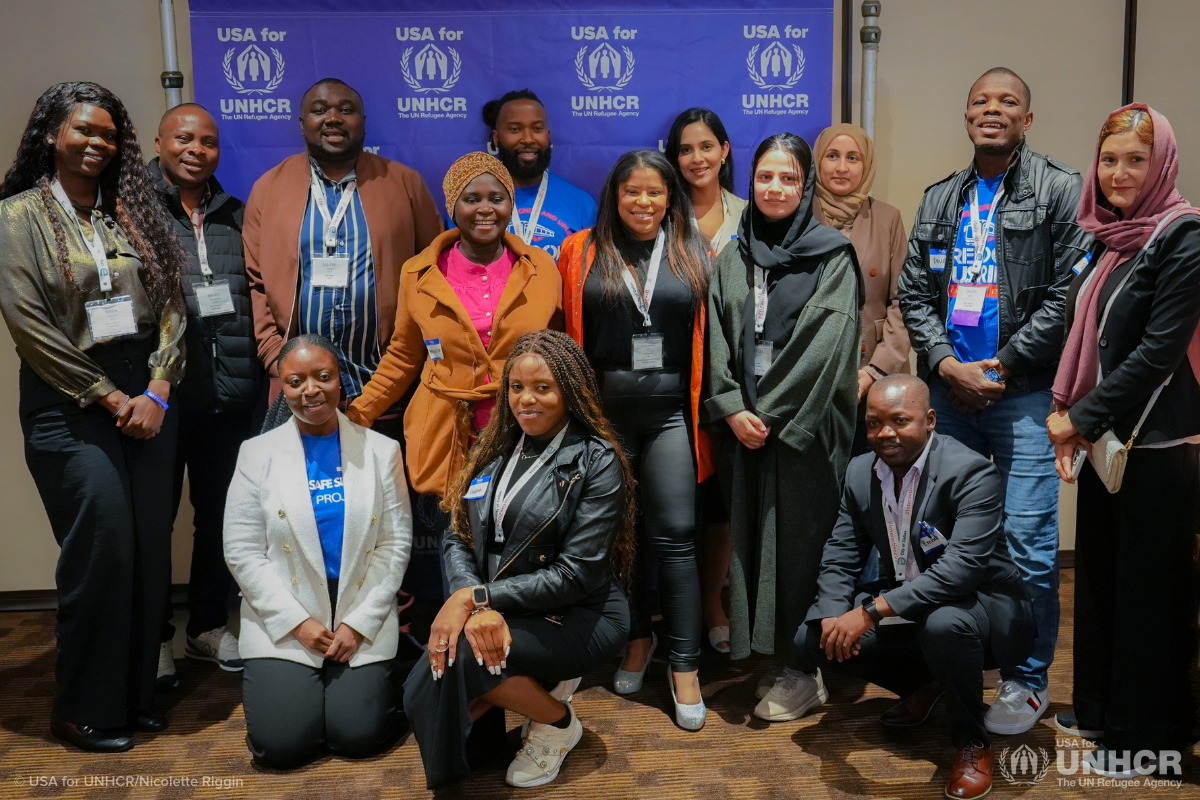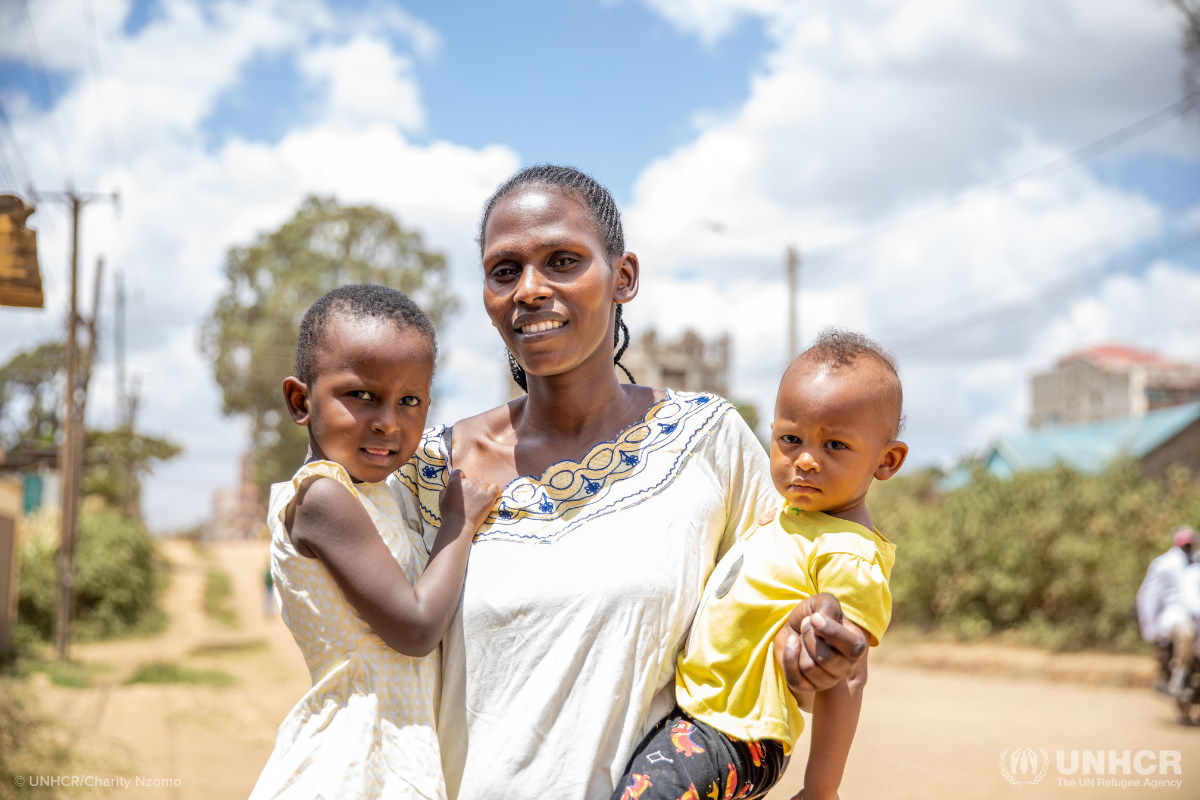Women and children displaced from Sudan seek safety in new countries and former hometowns
Women and children are facing some of the most devastating impacts of the ongoing humanitarian crisis in Sudan. The crisis has displaced more than 3 million people, including 659,000 forced to flee to neighboring countries with over 279,000 departures in early to mid-July alone. Many South Sudanese refugees who had sought safety in Sudan are now forced to return to their home country but often do not have a place to return to.
More than 13 million Sudanese children are in need of humanitarian assistance. Women and children make up almost 90 percent of Sudanese refugees fleeing to Chad — nearly half of all new arrivals are children.
Women and girls in Sudan are at increased risk of sexual violence, with more than 4.2 million Sudanese women in the country vulnerable to gender-based and intimate partner violence. Children’s education has also been disrupted amidst ongoing conflict.
Meet five Sudanese and South Sudanese women who are sharing their personal experiences with displacement and learn how they are finding hope away from home.
Achan

Achan sits with three of her six children, Deng, 1, Agook Akech, 3, and Acel Akech, 5, outside the UNHCR transit center in Renk, South Sudan due to a lack of space inside the center. Achan and her six children embarked on a dangerous and uncertain five-day journey from Sudan, crossing the border into South Sudan in search of safety.
"We faced many problems along the way, it was so bad, we saw fighting and had to hide,” Achan shares. “I could not stay in Khartoum with my children, it was too dangerous. So we chose this journey."
Now, Achan is focused on her family’s future. They plan to seek safety in Warrap state, roughly halfway across the country from Renk. She is determined to find a stable place with enough space for her family. “We will go,” she says, “as soon as we can find a way.”
Nyauke

Nyauke waits at the UNHCR transit center in Renk. Nine years earlier, Nyauke and her family fled from their hometown of Bentiu because of the civil war in South Sudan. They sought safety in Khartoum, Sudan’s capital. Now, after escalating violence over the past few months, she is considering a return journey to South Sudan with her mother, Naya, and her one-year-old sister Kuoli.
Nyuake describes their adopted home as having been, “So bad with the fighting. Men were shooting guns on our street and planes were dropping bombs around us.”
After a three-day journey by truck, they are concerned about their ability to meet their essential needs at the transit center. “I don't feel good here,” Nyauke shares, “There is little food and nothing for the baby.”
Nyauke is looking forward to the family’s return to Bentiu, their hometown in northern South Sudan. Four years of historic rains have flooded cities throughout the region, turning the city of Bentiu into a place of refuge for internally displaced communities. “We will return to Bentiu as soon as we can. I remember it was a beautiful place when I was a kid."
Ashta

Ashta fled from Sudan with her six children to the Koufroun refugee site, where UNHCR is registering arrivals near the border between Chad and Sudan. Originally from the town of Tindelti, in the Darfur region of Sudan, Ashta grew onions for a living. But after the murder of a community member, Ashta decided it was time to seek safety for her family.
To ensure that all her children could make the journey to Koufroun, Ashta and her older children walked on foot, while her younger children rode on a donkey and her youngest child was strapped to her back. Now, Ashta and her family are a few of the more than 192,000 Sudanese refugees hosted in Chad.
A critical element of UNHCR support for displaced communities includes mental healthcare and psychosocial support to address the lasting trauma of forced displacement. Ashta’s mind is still on her final moments in Sudan: “I'm relieved now, but I still think about what happened."
Eliza

Eliza sits with her one of four children, her fourth-month-old son Teny, at the UNHCR transit center in Renk, South Sudan. Eliza and her children journeyed from Khartoum to the transit center, after being forced to leave her husband behind in Sudan. They traveled for four days, spending half that time hiding in the bush without food or water to avoid the fighting. Eliza, like many who are being displaced from Khartoum, originally fled to the capital from Bentiu nearly ten years ago at the onset of the South Sudanese civil war.
While Eliza is troubled by the violence she and her family must navigate again, she approaches the situation with a matter-of-fact acceptance. “There was nothing to do but leave,” she says. “[Hiding in the bush] was so scary, at least here we are safe.”
Eliza shares some excitement about returning to Bentiu, which she left nearly a decade ago. “I am happy to return to Bentiu. It is my home.”
Nya

Nya and her children wait at Palouch airport in South Sudan for the third day, hoping to get a place on the South Sudanese government-operated planes flying refugees fleeing Sudan to different parts of the state. Thousands of families like Nya’s are waiting at the airport for a flight to safety.
Before leaving Khartoum, Nya says she saw dead bodies lying in the street. Now, she says she is happy to have returned to her home country. Nya and her family have joined more than 154,000 other internally displaced persons who have returned to South Sudan.
Although safe, families returning to South Sudan will face new challenges as they settle into their new communities. Food prices in the country are high and employment opportunities are predominantly in the agricultural sector. As the country infrastructure struggles to keep up with the needs of millions of returnees and refugees, humanitarian assistance will continue to be needed for the foreseeable future.
How you can help…
You can help those who have been displaced from Sudan by becoming USA for UNHCR’s newest monthly donor. Your support will help increase humanitarian aid and improve daily living conditions for millions of individuals who have been forced to flee their homes and safe havens.


